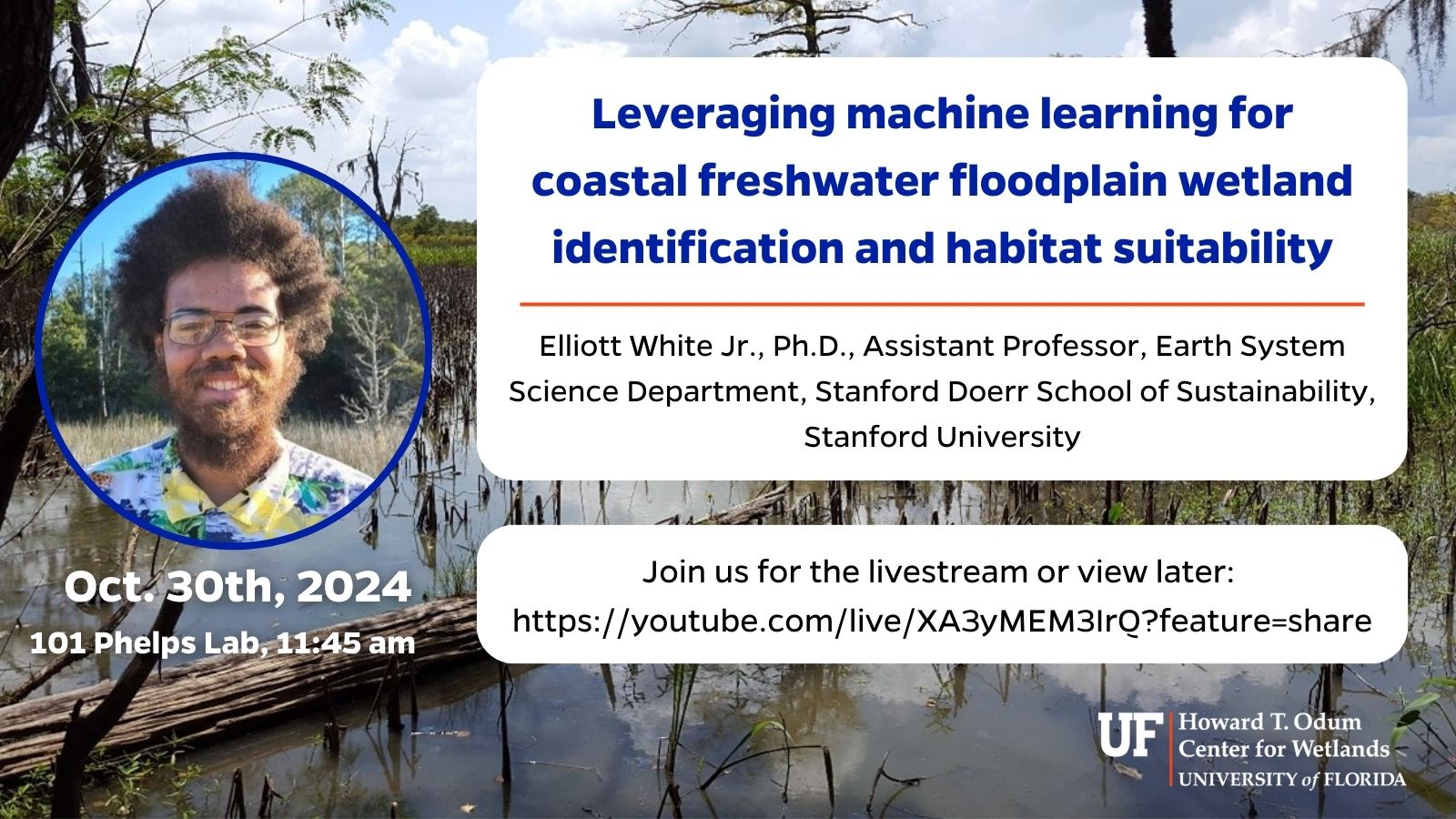
Elliott White Jr., Ph.D., Assistant Professor, Earth Science Department, Stanford Doerr School of Sustainability, Stanford University
Join us for the livestream October 30th, 11:45am ET: https://youtube.com/live/XA3yMEM3IrQ?feature=share
(Please visit our YouTube channel main page for the stream if there are any issues with the direct link.)
ABSTRACT
Coastal forested wetlands (CFWs) are a critical component of the coastal wetland mosaic and offer numerous ecosystem services (i.e. carbon sequestration, storm surge attenuation, groundwater recharge), however they face an existential threat due to coastal climate change (i.e. sea level rise, storm surge, hurricanes). Previous research documented nearly 14,000 km2 of CFWs loss in the North American Coastal Plain from 1996 – 2016 with more than 75% being explained by climate and topographic variables. However, there are critical information gaps regarding the location of and habitat suitability for CFWs. We leveraged publicly available datasets with advances in machine learning to develop a model that produces a wall-to-wall map of CFWs presence with on-demand updates, which exceeds the current standard that is updated on a 5-year basis. The temporally dynamic nature of our approach allows for rapid assessment of CFW change for acute events and should help constrain long-term estimates of change. In addition, we developed the first habitat suitability map for CFWs, which considers climate change to create forward looking view of the ecosystem. These advances may have far reaching applications, which include more estimating carbon stocks at scale, citing restoration and conservation opportunities, and natural resource monitoring.
BIO
Elliott White Jr. is an Assistant Professor of Earth System Science at Stanford University. He leverages his domain expertise in wetland sciences with interdisciplinary training in remote sensing and ecohydrology to investigate climate change related challenges to coastal socio-environmental systems. Elliott has a PhD in Environmental Engineering Sciences from the University of Florida and a BS in Biology and Animal Ecology from Iowa State University.
POSTCARD
